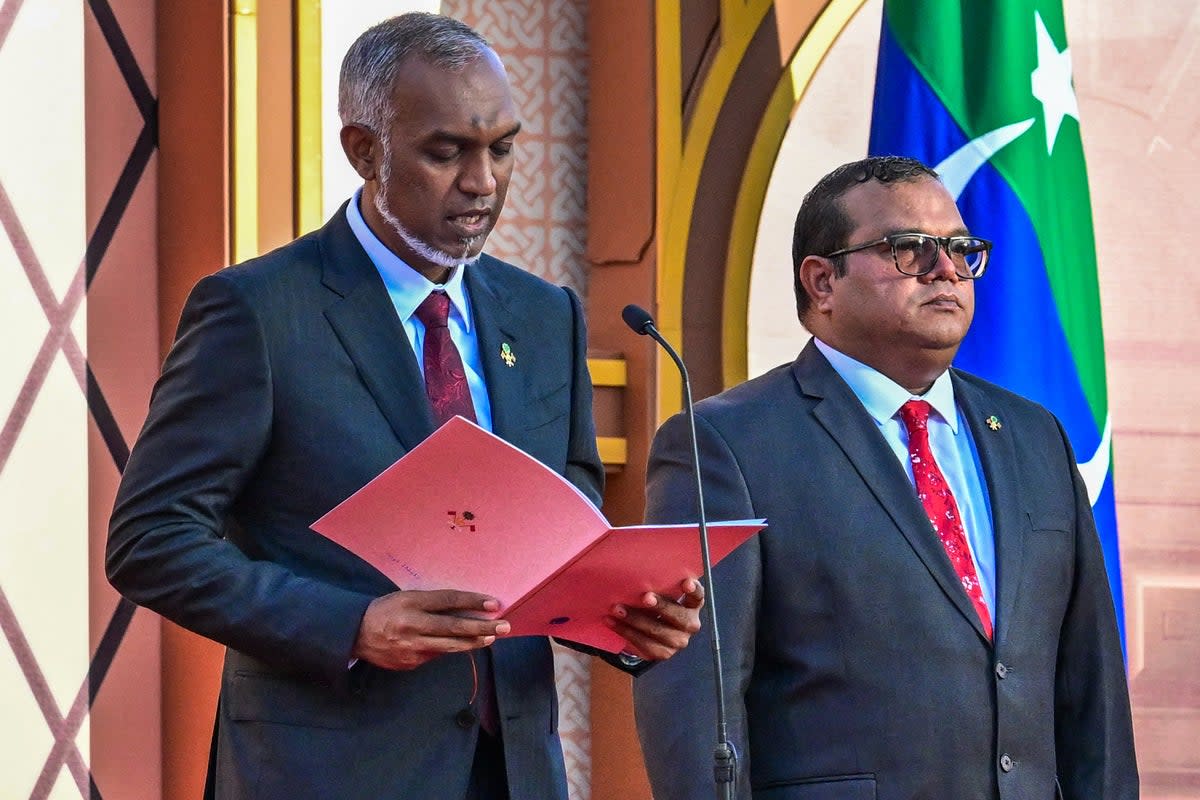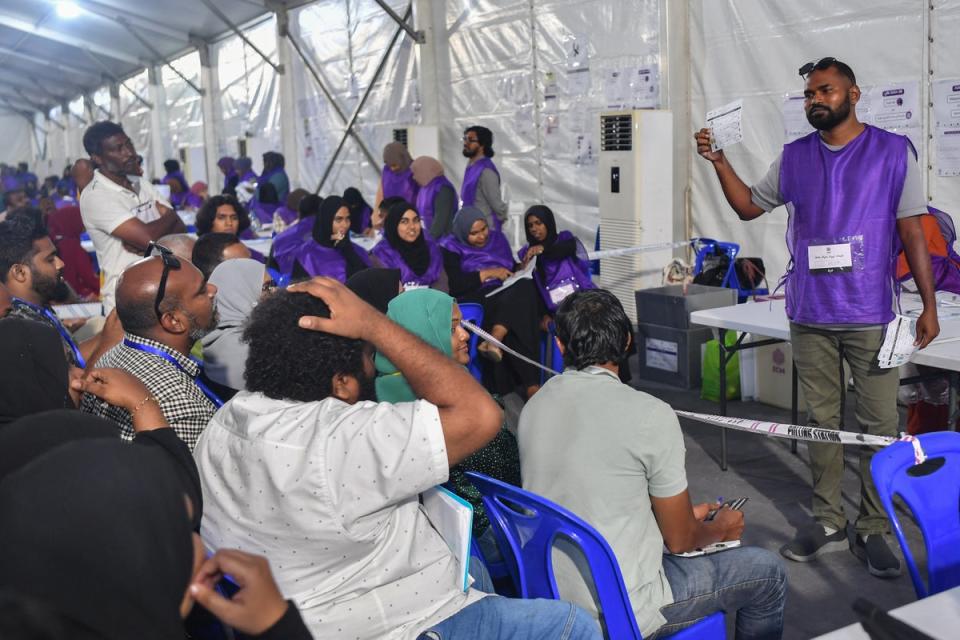Maldives president’s pro-China party wins control of parliament in setback to India

Maldives president Mohamed Muizzu’s pro-China party won a landslide majority in Sunday’s parliamentary election – an outcome that is set to shift the Indian Ocean archipelago away from its traditional partner India.
Mr Muizzu’s People’s National Congress won 65 of the 93 seats, preliminary results from the country’s election commission and media projections showed.
The Maldivian Democratic Party of former president Ibrahim Mohamed Solih, who is seen as being pro-India, held 65 seats in the outgoing parliament but won only 12 seats, Reuters reported.
Official results are expected to be announced later on Monday.
The election was closely watched by regional powers India and China, which are vying for influence in the region.
Mr Muizzu, elected last year, has pledged to end the country’s "India First" policy, putting relations with New Delhi under strain.
His government has told dozens of Indian military personnel to leave the country, a move observers say could accelerate the country’s shift towards China.
At least 75 Indian military personnel were stationed in the Maldives and their known activities included operating two aircraft donated by India and assisting in the rescue of people stranded or faced with calamities at sea. Mr Muizzu has moved to have civilians take over those activities.
Relations were strained further when Indian social media influencers started a boycott of tourism in Maldives. That was in retaliation for three Maldivian deputy ministers making derogatory statements about Indian prime minister Narendra Modi for promoting tourism in Lakshadweep, India’s Arstring of islands in the Arabian Sea similar to the Maldives.

India has fallen from being the top source of foreign visitors to Maldives to sixth spot, according to Maldives government statistics.
Mr Muizzu visited China earlier this year and negotiated an increase in the number of tourists and inbound flights from China.
Sunday’s election proved easier than expected for the president, who had been expected to face a tough fight after some of his allies walked out and more parties entered the race.
Six political parties and independent groups fielded 368 candidates for the 93 parliamentary seats. The number of seats is six more than in the previous parliament following adjustments for population growth.
Voter turnout was 72.9 per cent, the elections commission said, lower than the 82 per cent in 2019.
The opposition campaigned against Mr Muizzu’s government over foreign policy issues and the economy. The results show they didn’t find much purchase with the voters.
In fact, Mr Muizzu’s party took key seats even in formerly Maldivian Democratic Party strongholds such as the capital Male, Addu City and Kulhudhuffushi City in the north.
The Democrats, a party founded by former president Mohamed Nasheed after splitting from the Maldivian Democratic Party in 2023, lost all the seats it contested, as did another former president Abdulla Yameen’s new party.
Additional reporting by agencies


